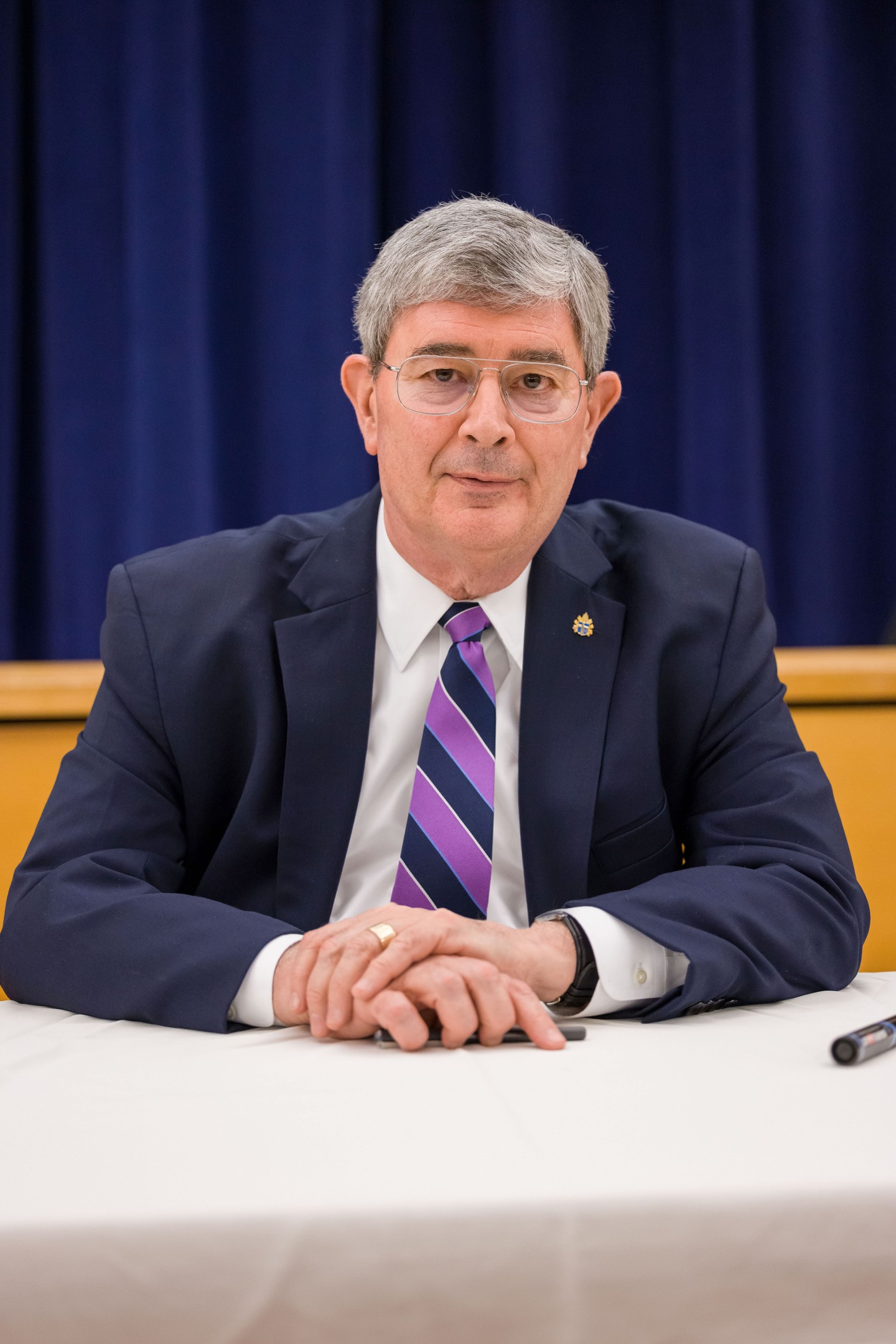In early July, Vladimir Putin toured an Orthodox church in St. Petersburg, piously crossed himself, and lit a candle. Hours before, Russian missiles had attacked the Ukrainian port city of Odessa, demolishing the roof of the historic Orthodox Transfiguration Cathedral, setting the building afire and melting some of its gold icons. The dwindling numbers of imbeciles who regard Putin as the savior of Christian civilization might ponder that juxtaposition of events.
Shortly after this Russian atrocity, OSV News interviewed Major Archbishop Sviatoslav Shevchuk, the head of the Ukrainian Greek Catholic Church and a heroic leader of his people. When I first met the archbishop in 2011, neither of us imagined that, eleven years later, he would figure prominently on a list of those to be assassinated after the Russian conquest of Kyiv—or that Russian moles would have penetrated his cathedral choir in the months before the invasion of Ukraine, looking to wreak havoc as genocidal Russian troops smashed the Ukrainian capital.
Over more than 500 days of war, Major Archbishop Shevchuk has confronted a horrific situation with a resolve born of deep faith—the Christocentric, cruciform faith that animates his pastoral outreach to the war’s victims. His responses to questions from OSV’s Gina Christian captured the archbishop’s human and priestly qualities in a moving way:
What can you say to the mother who lost her son? What kind of consolation can you find for someone whose life is destroyed because of this war?
The response is just to be present, to stand with and maybe to cry with them, to share their pain and sorrow. It is not always possible even to say, “I understand you.” I learned that visiting our soldiers in the hospital. The most difficult phrase to hear for that soldier lying without two legs is for somebody to tell him, “I understand you.”
I would call this a sacrament of presence—when we are present, sharing this sorrow, God himself is present. If you share the sorrow, that pain can diminish. And if you invite these people to help one another, such acts of charity can be therapeutic. . . .
We prayed in one place [in Bucha] which had bullet marks where many boys were executed. And after this prayer, we had a chance to stay a few hours and just to talk. I remember one man with profound blue eyes who stayed silent. Finally, I spoke to him, and he shared how he had come there to find the body of his 22-year-old son, whose name was also Sviatoslav. He told me, “I saw my son with gouged-out eyes.”
The people of Bucha told me that [Russian troops] were [committing] those crimes in preparation for a big ethnic cleansing in Kyiv. If Russia had entered the city, Kyiv would have been flooded with human blood. They were well prepared for such a crime, but in a mysterious way, we are alive. I would consider each day of my life today as a miracle.
The archbishop has put that miracle to good use, not least by reminding Vatican officials that calls for instant reconciliation are religiously spurious: “We cannot be forced,” he told OSV News. “It is impossible to impose any kind of false sign of reconciliation.”
Yet Sviatoslav Shevchuk is a man of reconciliation, properly understood. When we spoke at length on July 6, he was en route to Warsaw to participate in a joint Ukrainian–Polish ceremony of reconciliation, as the two nations marked the eightieth anniversary of the 1943 Volhynia massacres, in which Ukrainian partisans killed tens of thousands of Polish villagers and Poles responded in kind, if not in commensurate lethality. In Warsaw, Shevchuk signed a joint statement of reconciliation with Archbishop Stanisław Gądecki, president of the Polish bishops’ conference, and the two men repeated that powerful gesture days later in the Ukrainian city of Lutsk. There, in the presence of presidents Andrzej Duda of Poland and Volodymyr Zelensky of Ukraine, Major Archbishop Shevchuk proclaimed, “We hear, as believers, how heaven and earth, the living and the dead, say to each other with one voice: we forgive and ask for forgiveness.”
In The Cost of Discipleship, the Lutheran anti-Nazi martyr Dietrich Bonhoeffer distinguished between cheap grace and costly grace. Cheap grace is “grace without the cross, grace without Jesus Christ, living and incarnate,” while costly grace is “the call of Jesus Christ . . . [which] is costly because it costs a man his life, and [which] is grace because it gives a man the only true life.” Bonhoeffer would have recognized in Major Archbishop Sviatoslav Shevchuk a pastor who lives by costly grace—and is therefore able to be an agent of true reconciliation.
George Weigel’s column “The Catholic Difference” is syndicated by the Denver Catholic, the official publication of the Archdiocese of Denver.

George Weigel is Distinguished Senior Fellow of Washington, D.C.’s Ethics and Public Policy Center, where he holds the William E. Simon Chair in Catholic Studies.
First Things depends on its subscribers and supporters. Join the conversation and make a contribution today.
Click here to make a donation.
Click here to subscribe to First Things.
Image by Senat Rzeczypospolitej Polskiej licensed via Creative Commons. Image cropped.

